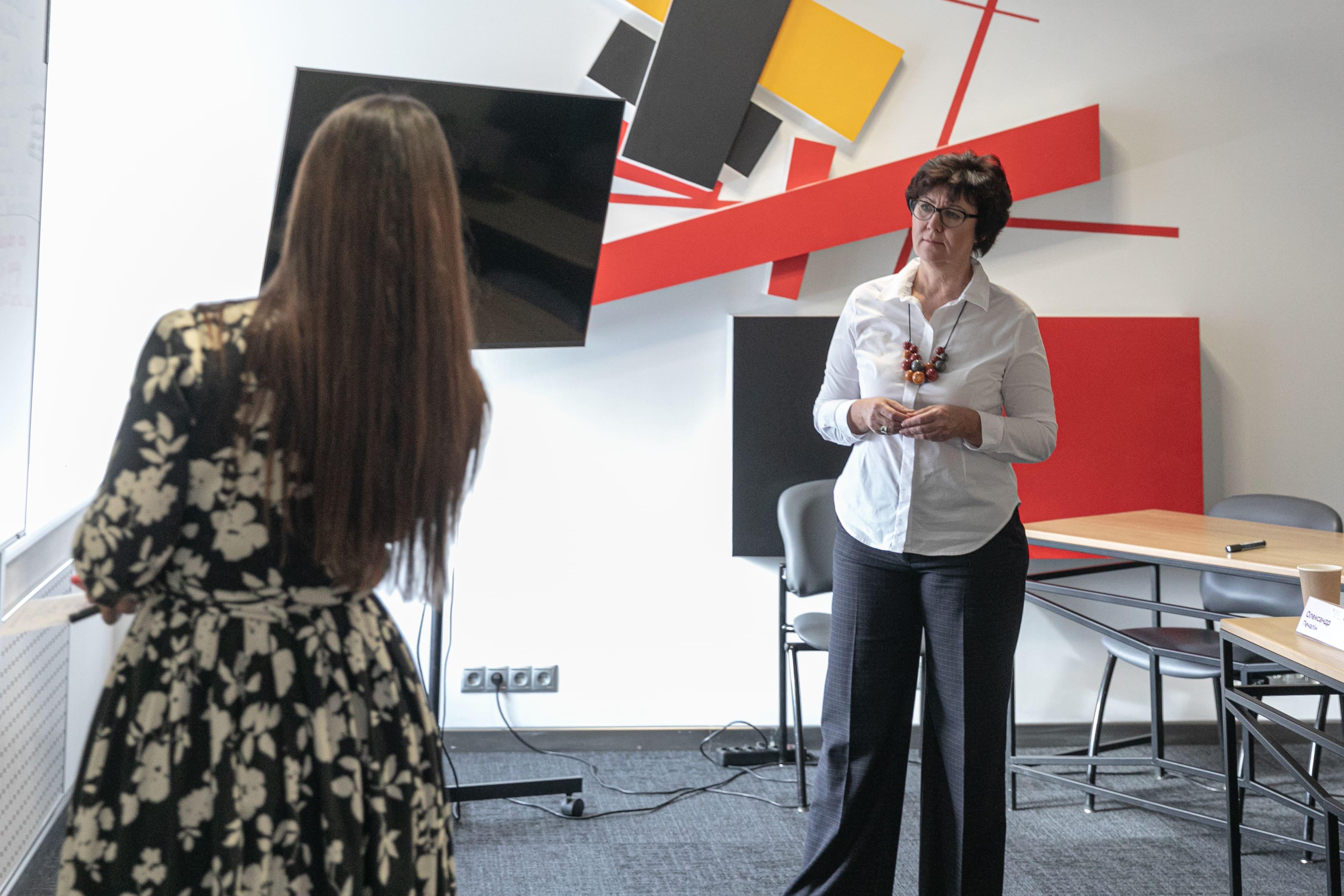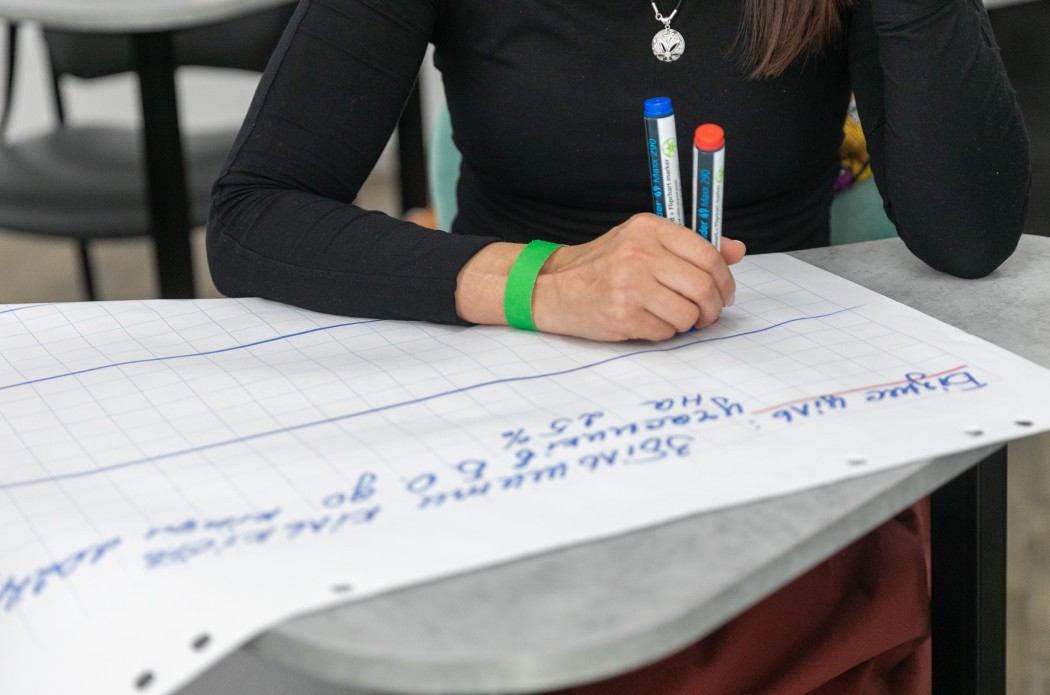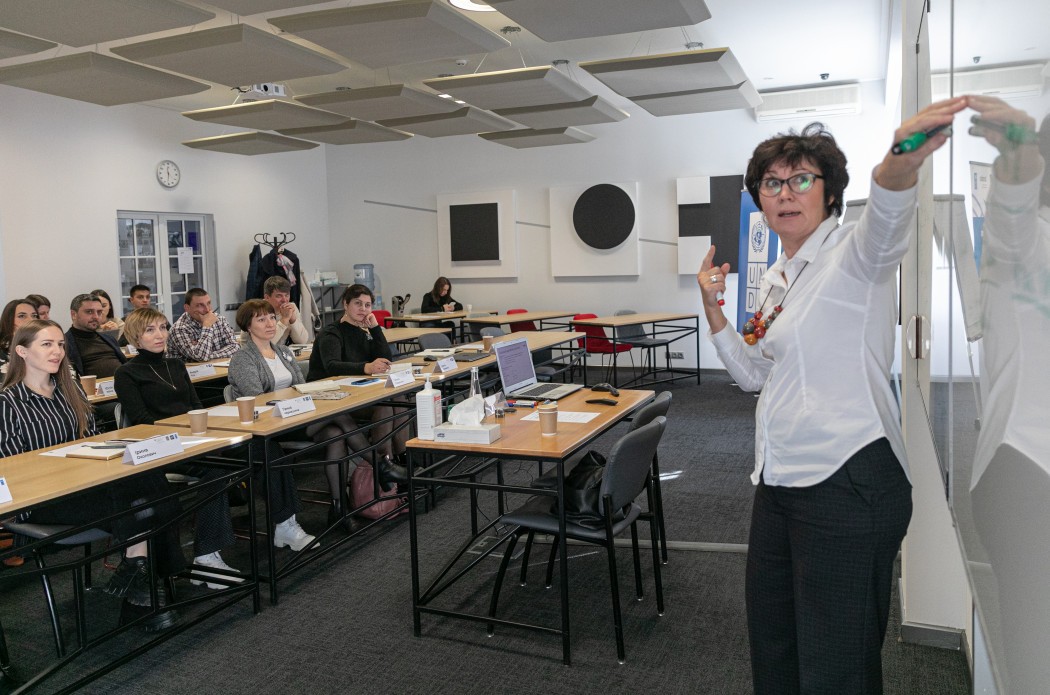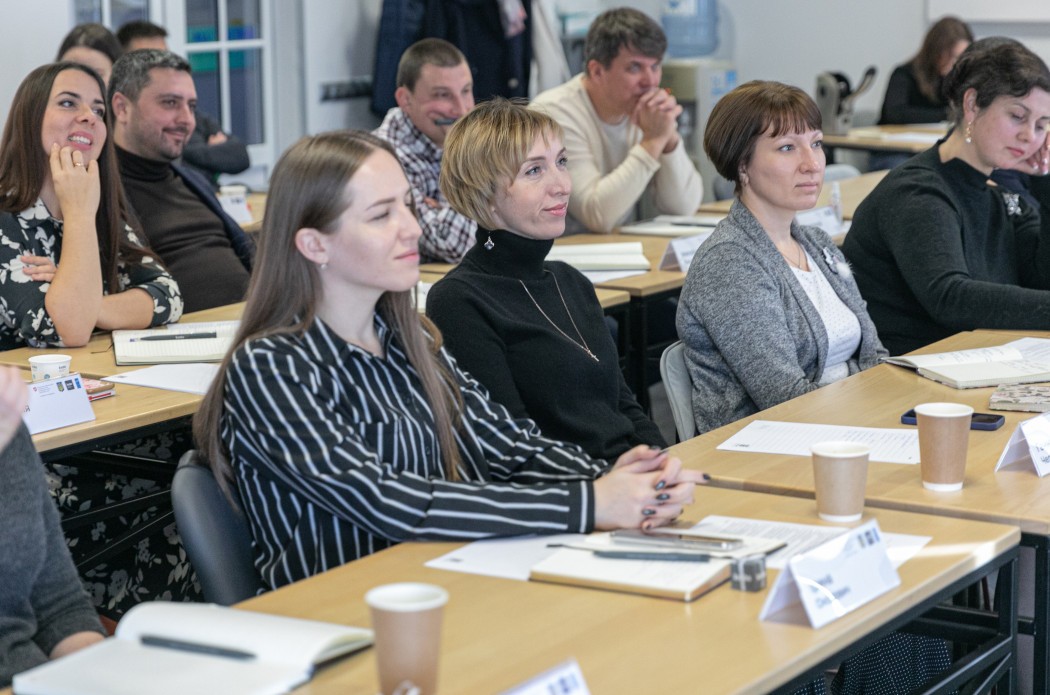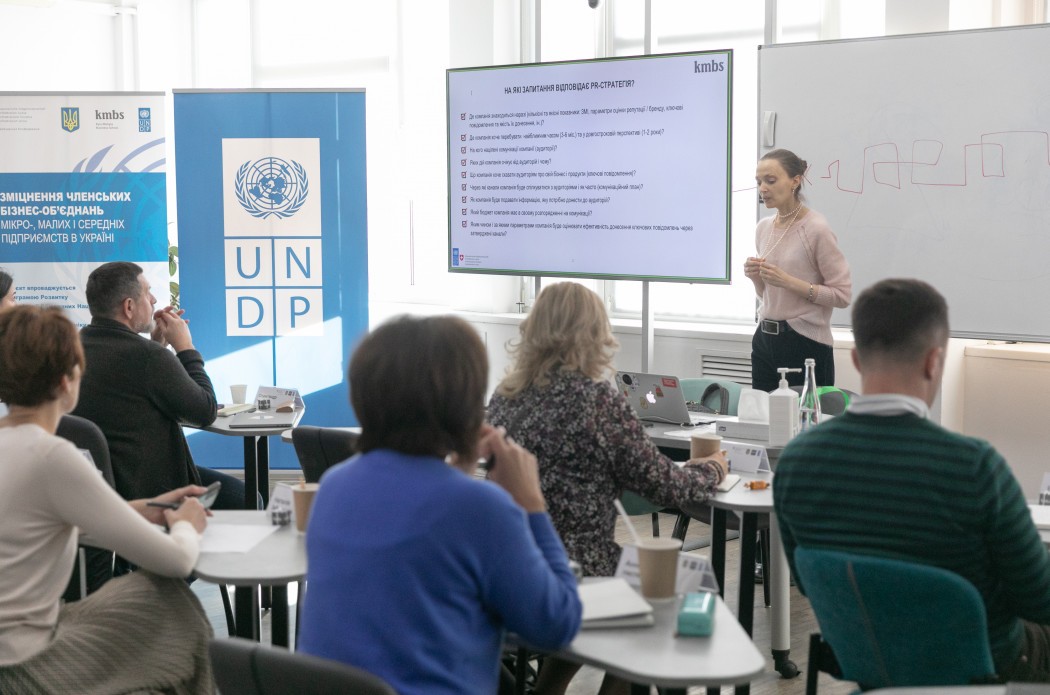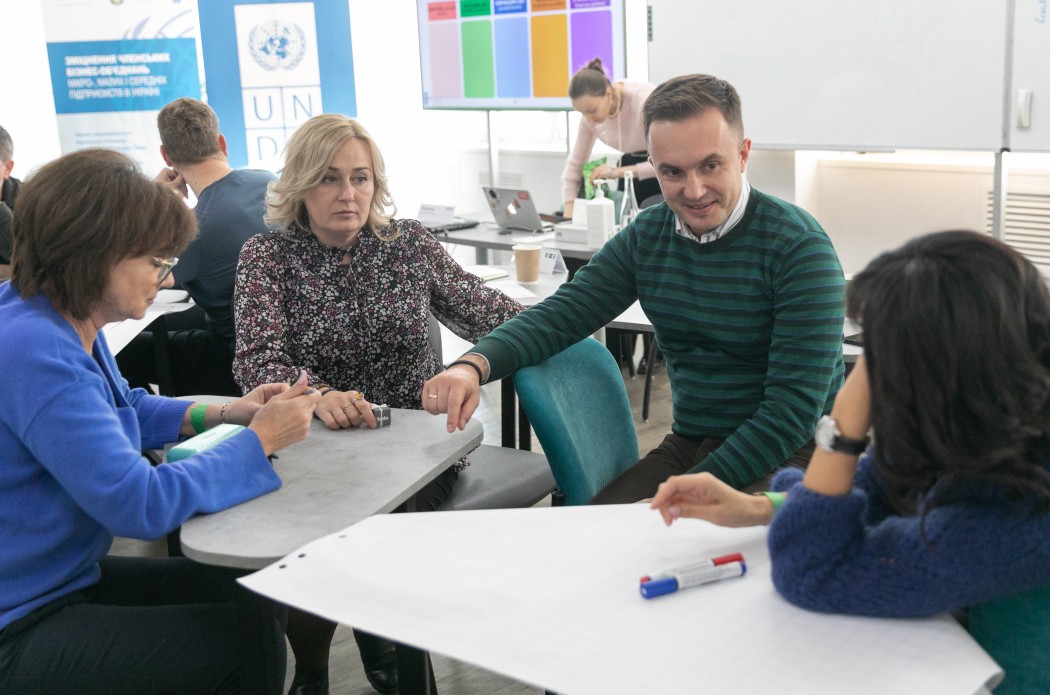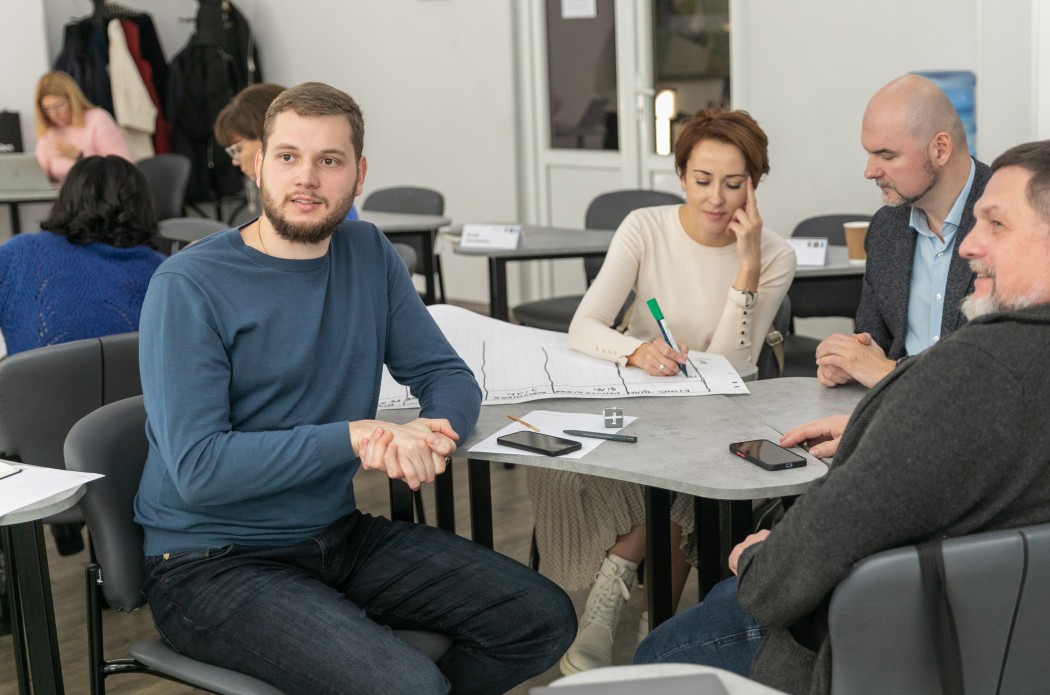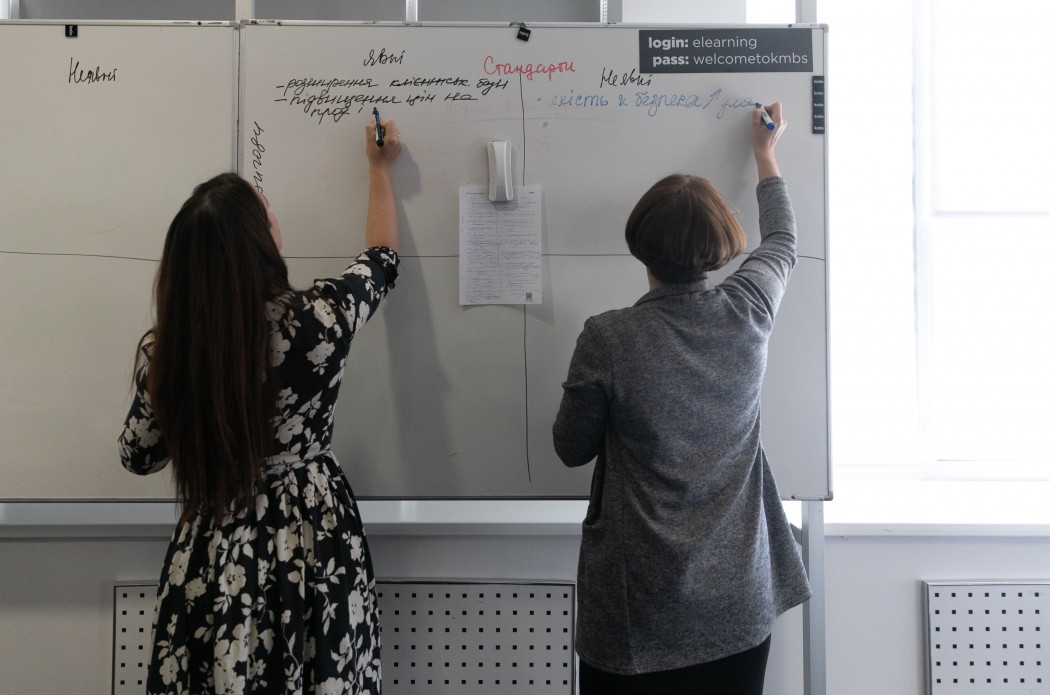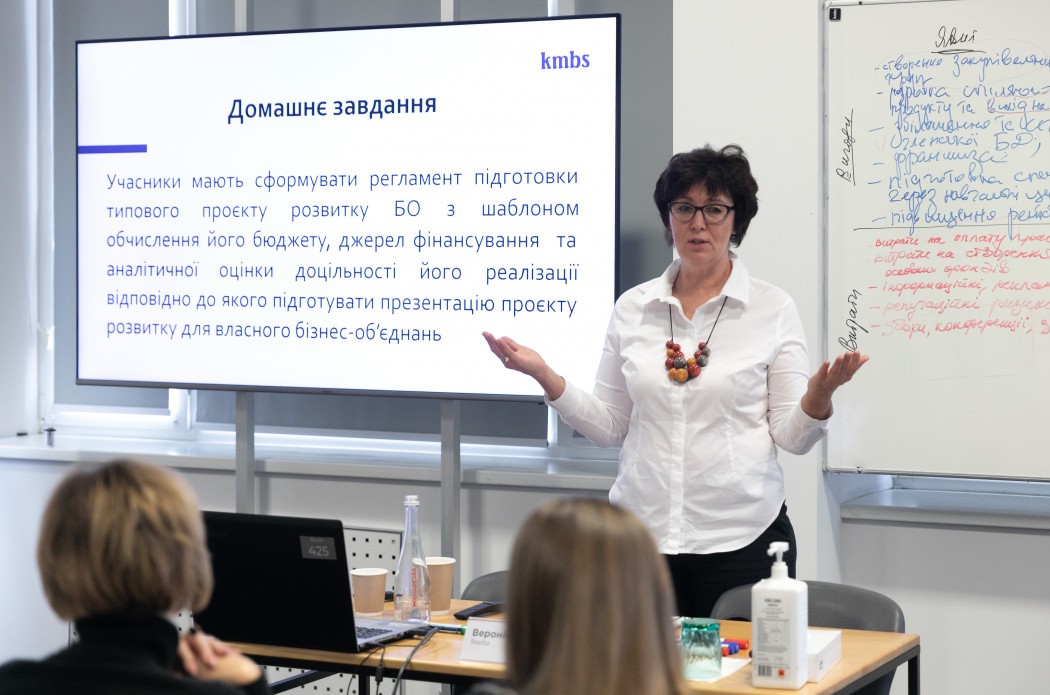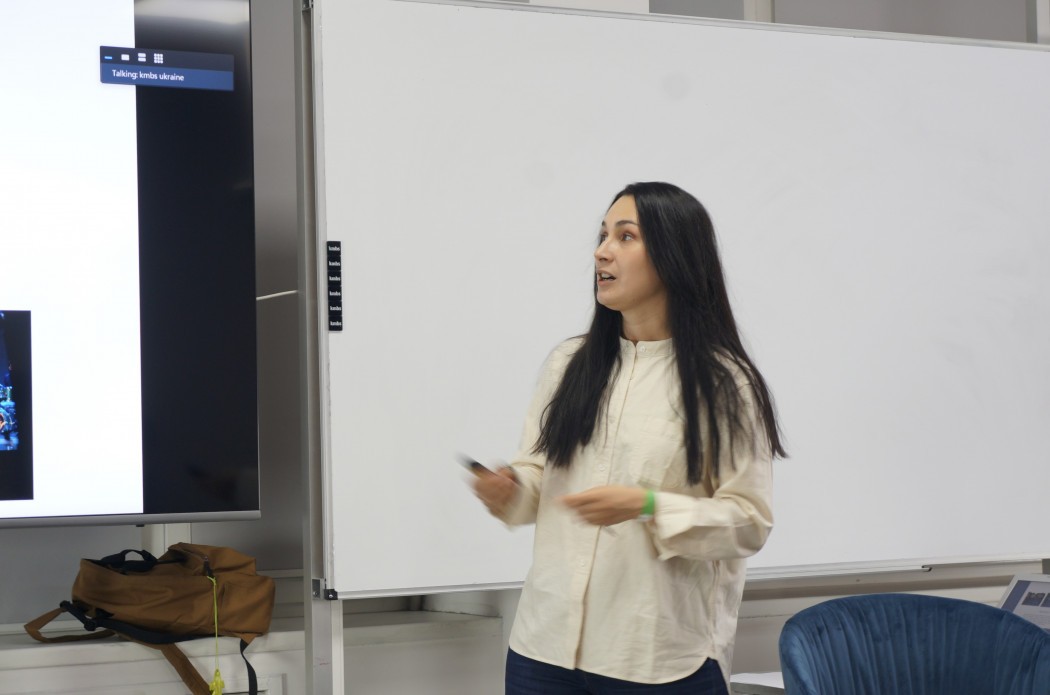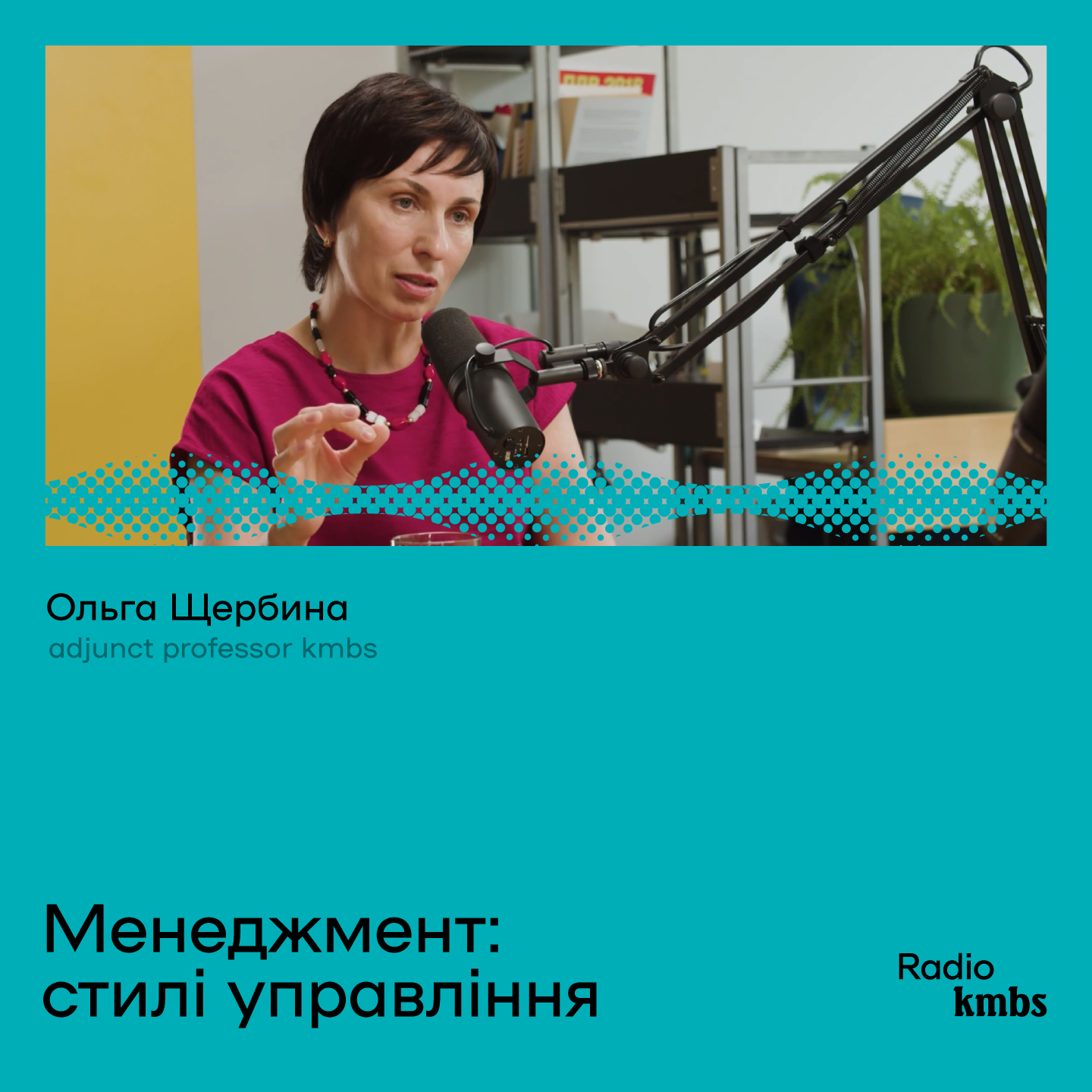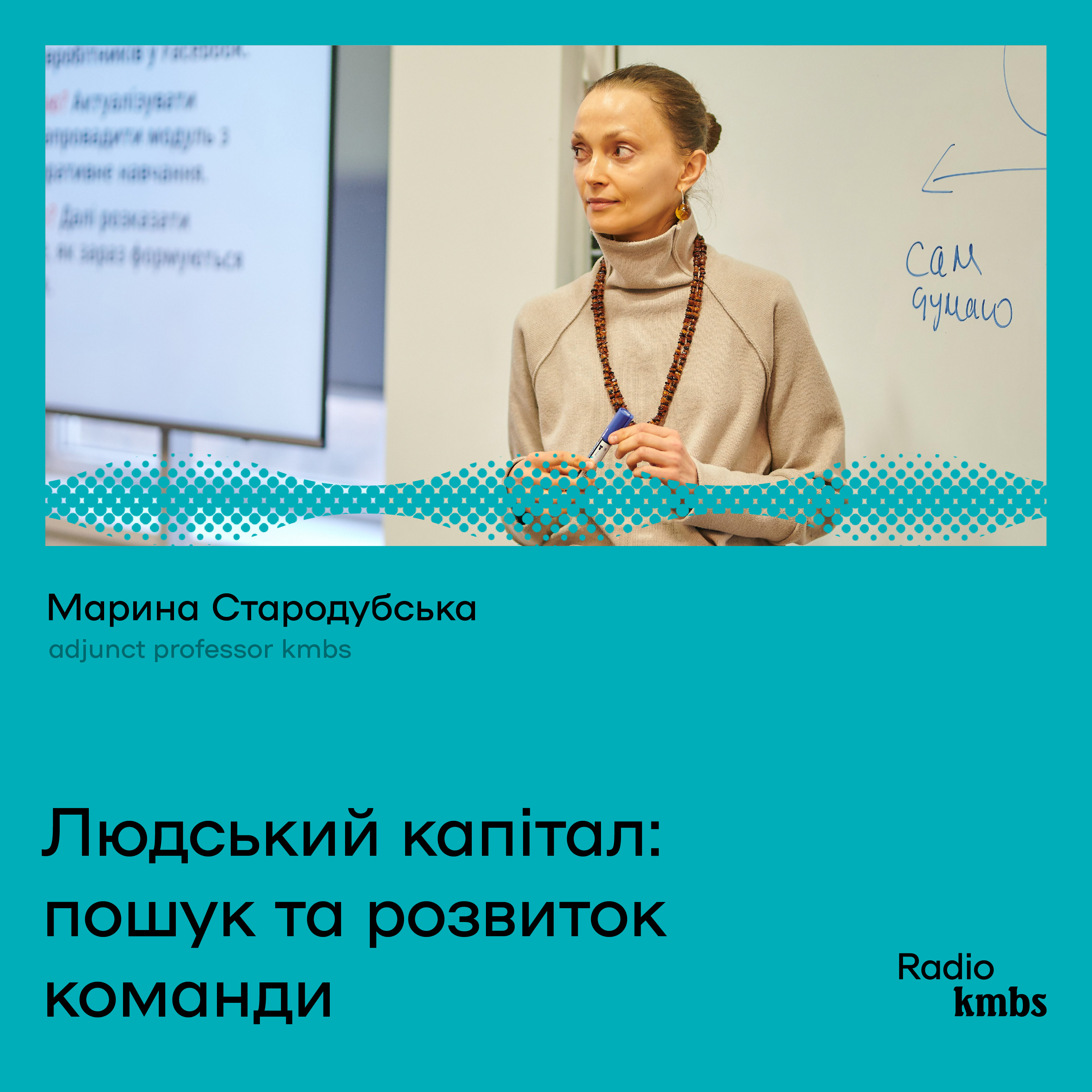On November 7 and 8, the Kyiv-Mohyla Business School hosted the second two-day training module for heads of member business associations within the second phase of the UNDP Project "Strengthening Member Business Associations of Micro, Small and Medium Enterprises in Ukraine" in cooperation with the Ministry of Economy of Ukraine and with the support of Switzerland. This project aims to accelerate the development of the IHR sector by strengthening the capacity of member business associations (BUs).
"What is the value of your stay at school?" Veronica Verba, a kmbs teacher, asked the audience. "I came from Lviv, covered 650 km for new ideas. The fact that I can look at the obvious things in a new way is the value of learning, ”said Vasyl Masyuk, a UNDP Project participant.
The first day of training for leaders began with a lecture by Veronica Verba on the financial aspects of the functioning of the BA. The participants discussed, in particular, the issues of ensuring the financial stability of the BA, sources and structure of funding, optimization of finances, the principles of budgeting of the BA, etc. The expert stressed that finances are a reflection of our decisions. "If you choose a financial model, you have to calculate its financial consequences — it will limit the development of your community or, conversely, will give you opportunities," — said Ms. Veronica.
Participants also had a lecture from Marina Starodubska on effective communication BA. Ms. Marina noted that a reputation profile (a complete list of parameters that are important to you and your target audience) is important for effective communication. When we communicate without a strategy, there is a "sprinkler" effect. That is, there is a lot of communication, but no influence, "the teacher explained.
"How to work effectively with the media? How do people consume them? What are the popular methods of working with the media? ” — Maryna Starodubska told about all this and more during the second school day. "Fewer and fewer Ukrainians look at several sources, more and more — focus on one," said the teacher. — For planning your PR and communication campaigns, this means that the choice of channel is an aspect in which there is no room for error. After all, even cool content from the wrong channel will be rejected.
Participants also learned how to deal with reputational risks on the example of their own BAs. This made it possible to understand that, first of all, it is necessary to change the communication strategies of the BA.
In addition, BA leaders continued to gain knowledge in the field of Human Capital with Olena Zhyltsova, a kmbs professor. "Organizational culture is the behavior of the system and the people in the system, which, in fact, is based on values," Ms. Olena explained. She also told the audience how this type of management is interpreted at three levels: business national, corporate (company level) and subcultures within the institution.
At the end of the first and second school days, two open evening events of the Ukrainian-Swiss UNDP Project were waiting for the leaders of business associations. On November 7, Oleksandra Koltsova, author, producer, public figure and vocalist of the group "Baby", visited the school and continued a series of lectures on "My business is my country." Together with Ms. Oleksandra, the audience actively discussed the topic of leadership, its features, forms, gender component, etc. "A leader is a person who takes responsibility, who does his job and understands that he does it not only for himself," said Ms. Alexandra.
On Monday, November 8, the Project participants had the opportunity to talk to Oleksandr Starodubtsev, NAPC Deputy Chairman and Executive MBA-10 graduate. With a lecture on approaches to organizational transformation, he continued a series of evening events called "State and Business".
"You can try to restore not the whole state, but individual organizations one by one, while gaining trust," — said Mr. Alexander. As an alternative to this method, he offered the audience his own model of organizational transformation, which takes place simultaneously on three levels: ideological, behavioral and instrumental.
Our participants are already actively working on the transformation and strengthening of their own BA, while strengthening the development of our state.

